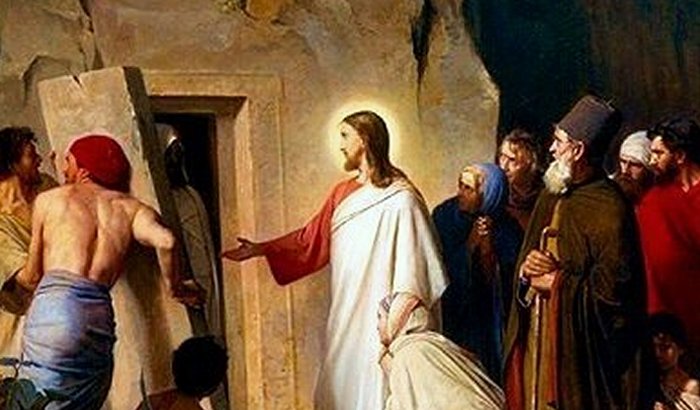

They believed, for instance, in the resurrection on the Last Day, while other Jews such as Sadducees did not. Ironically, Jesus’ bitterest enemies, the Pharisees, held theological beliefs that were often quite close to Christian ones. Martha’s conversation with Jesus displays the curious way in which popular Jewish belief had seen a large portion of the revelation that was given fully in Christ. The supreme paradigm of this is Christ Himself, who endures the most suffering and has been exalted higher than all. To them, as to Lazarus, a special work of healing will be done for the one He loves so much. And so He did, as He often does, permit suffering to afflict those who are His special favorites. We could accept “yet” or “but,” but “so” means that Christ deliberately allowed this affliction and death as a sign of special favor to Lazarus. It is the strange word “so” at the beginning of the second sentence that baffles the modern reader. So when he heard that he was ill, he stayed two days longer in the place where he was” (vv. Indeed, John makes the shocking remark, “Now Jesus loved Martha and her sister and Lazarus. It is particularly notable that this suffering has come to this family, whom John records as the special objects of Jesus’ love. Mary’s questions to Jesus - her tormented “Why?” - reflects the mind of the contemplative we have already glimpsed in Luke 10:38-41. She gets up and hurries to Jesus when He arrives. Martha is again seen as the “active” sister. Certainly, the information John relates in his Gospel parallels the information in Luke. The first of these parallels is the odd mention, before John has told the story himself (Jn 12), of Mary of Bethany as the woman “who anointed the Lord with ointment and wiped his feet with her hair.” This suggests that John’s audience is very familiar with Mary, Martha, and Lazarus already, either from the synoptic Gospels (particularly Luke, who mentions Mary and Martha) or from having known them personally. As we shall discuss below, however, there is a curious parallel between this story and the synoptic Gospel tradition, particularly with Luke 16:19-31. The raising of Lazarus is only mentioned in John’s Gospel. Such speculation is in no way binding on Catholics, but may provide some useful ideas for meditation and further study.


I say this because what follows is precisely an example of speculative theology. Indeed, one of the legitimate tasks of a theologian is to speculate and float different ideas about biblical texts in the search for greater understanding of what riches may be hidden and yet unexplored in the Deposit of Faith. So, for instance, a Catholic may not suppose that, “Why do you call me good? There is none good but God alone” (Mark 10:18) is a statement intended by Christ to deny His deity, since the Church, under the guidance of the Holy Spirit, has already sifted the biblical evidence and been shown that Jesus is indeed God.īut apart from these few boundaries, speculation is encouraged - so long as speculation is distinguished from the solemn teaching of the Church, and no one tries to bind the conscience of another. This typically means that there are a few things we may not suppose certain texts to mean, since the mind of Christ has already made it clear through the conciliar or papal teaching of the Church that these passages do not mean that. The sole boundaries for Scriptural interpretation are always, of course, reconciliation with the rest of Scripture, the Tradition of the Church, and the magisterial judgments of the Church. Almost never will the Church say, “Verse X or story Y means this and this only.” Typically, the Church encourages biblical students to find as many applications of the biblical text as can be fruitful to our spiritual lives and our union with Christ. The Church has relatively few dogmatic teachings, particularly when it comes to the interpretation of a biblical text. Many people have the idea that the Church functions according to the principle: “That which is not forbidden is compulsory.” But this is not the case.


 0 kommentar(er)
0 kommentar(er)
